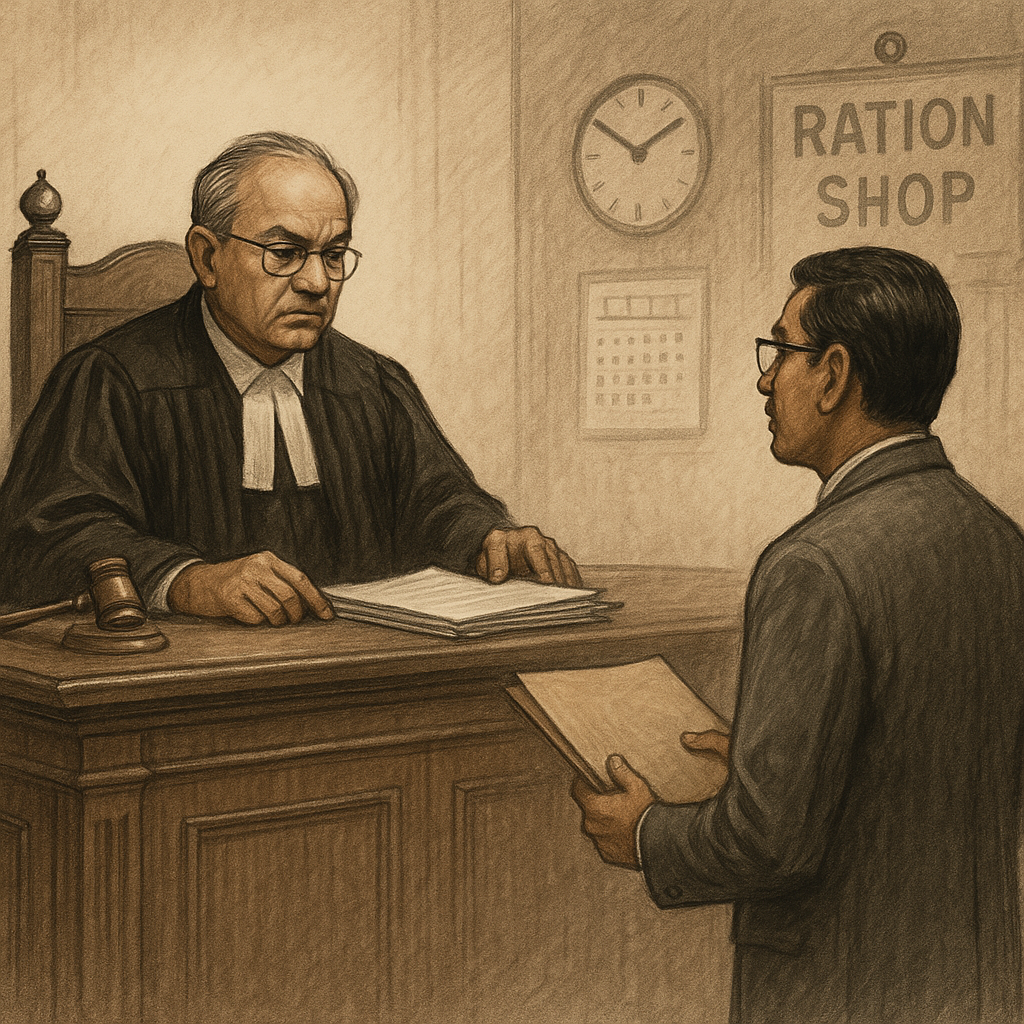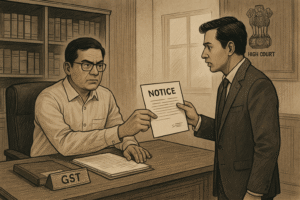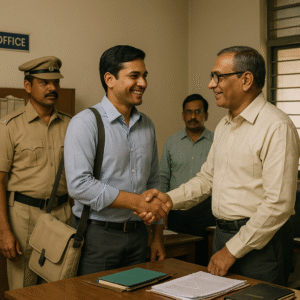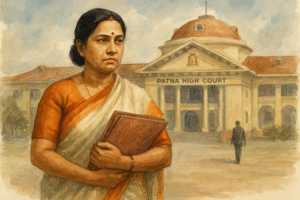Simplified Explanation of the Judgment
The Patna High Court has dismissed a writ petition challenging the cancellation of a Public Distribution System (PDS) shop licence on the grounds of delay and laches. The Court held that the petitioner approached the Court nearly seven years after the appellate order, and no convincing explanation for this inordinate delay was given.
The case began when the Sub-Divisional Officer (SDO), Manjhaul, cancelled the petitioner’s PDS shop licence on 8 July 2003. The cancellation was upheld by the District Magistrate, Begusarai, on 15 December 2012 in Misc. Case No. 97 of 2003. The petitioner then waited until 2020 to approach the High Court under Article 226 of the Constitution.
State’s Argument:
- The writ petition was not maintainable because of the long gap between the cause of action and filing of the petition.
- In the 17 years since the original cancellation, significant developments had taken place, and third-party rights might have been created.
Petitioner’s Position:
- The petitioner failed to provide any reasonable or plausible justification for the delay.
Court’s Observations:
- Unexplained Delay:
Even counting from the date of the appellate order (15 December 2012), the petitioner took almost seven years to approach the High Court. - Doctrine of Delay and Laches:
- The Court cited the Supreme Court judgment in State of J&K v. R.K. Zalpuri [(2015) 15 SCC 602], stressing that stale claims should not be entertained.
- It referred to State of M.P. v. Nandlal Jaiswal [(1986) 4 SCC 566], which held that courts generally do not assist tardy or lethargic litigants, as delay can prejudice third parties.
- The Court also relied on Chennai Metropolitan Water Supply & Sewerage Board v. T.T. Murali Babu and Karnataka Power Corporation v. K. Thangappan, which reinforced that writ jurisdiction is discretionary and may be refused where negligence or inaction causes prejudice.
- Equitable Considerations:
Delay reflects inactivity and undermines equitable relief. Law does not allow a litigant to “sleep over” rights and revive them at will. - No Exceptional Circumstances:
The Court found no grave injustice that would justify overlooking the delay.
Final Decision:
The High Court dismissed the writ petition purely on the ground of delay and laches, without entering into the merits of the licence cancellation.
Significance or Implication of the Judgment
- Strict Approach to Delay:
Litigants must approach the court within a reasonable time after a cause of action. - Impact on PDS Licence Holders:
Those aggrieved by administrative orders must challenge them promptly to avoid dismissal. - Judicial Efficiency:
The judgment discourages revival of stale claims that may disrupt settled rights or administrative actions. - Reminder of Discretionary Nature of Writ Jurisdiction:
Article 226 remedies are not automatic and depend on the petitioner’s conduct.
Legal Issue(s) Decided and the Court’s Decision with Reasoning
- Whether a writ petition can be entertained after a long unexplained delay?
Decision: No. Delay of about seven years without sufficient explanation barred relief. - Whether principles of delay and laches apply to licence cancellation cases?
Decision: Yes. They apply to all writ matters, especially where third-party rights may have arisen.
Judgments Relied Upon or Cited by Court
- State of J&K v. R.K. Zalpuri, (2015) 15 SCC 602
- State of M.P. v. Nandlal Jaiswal, (1986) 4 SCC 566
- Chennai Metropolitan Water Supply & Sewerage Board v. T.T. Murali Babu
- Karnataka Power Corporation Ltd. v. K. Thangappan
Case Title
Arun Kumar Mehta v. State of Bihar & Ors.
Case Number
Civil Writ Jurisdiction Case No. 2276 of 2020
Citation(s)
2020 (3) PLJR 25
Coram and Names of Judges
Hon’ble Mr. Justice Mohit Kumar Shah
Names of Advocates and who they appeared for
- For the Petitioner: Mr. Jai Prakash Singh
- For the Respondents: Mr. S. Raza Ahmad (AAG-5)
Link to Judgment
https://patnahighcourt.gov.in/viewjudgment/MTUjMjI3NiMyMDIwIzEjTg==-ZD6BC3ienc0=
If you found this explanation helpful and wish to stay informed about how legal developments may affect your rights in Bihar, you may consider following Samvida Law Associates for more updates.








